Education is a powerful tool, it can lift people up, it can alter the very shape of society, and it can create a more even playing field. Because of the transformative power of education, it is important that it is made accessible for all. Classes such as chef education offer options to students who may not be motivated by the more traditional or academic classes an opportunity to engage with education and schooling. The core ideals of my educational philosophy are relationships, passion, curiosity, and openness, all of which are built on the premise of equal access to education.
Relationships
I had the honour of spending two years supervising high school students in a dorm setting. It was this experience that reinforced the importance of relationships. Not just those between teachers and students, but also those with parents, 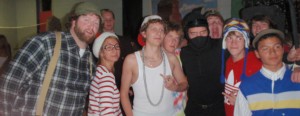 coworkers and administration. It is the relationships that we create with others that are the most long lasting. While I cannot recall a specific lesson that I was taught by one of the teachers in high school, I can remember the jokes that were exchanged on our class canoe trip. The importance of relationships can be found in the theory of a personalized school environment where “the school and the adults within it intentionally work to know
coworkers and administration. It is the relationships that we create with others that are the most long lasting. While I cannot recall a specific lesson that I was taught by one of the teachers in high school, I can remember the jokes that were exchanged on our class canoe trip. The importance of relationships can be found in the theory of a personalized school environment where “the school and the adults within it intentionally work to know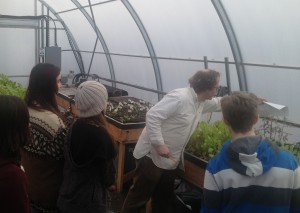 students as individuals” (Bernstein-Yamashiro and Noam, 2013, p. 3).
students as individuals” (Bernstein-Yamashiro and Noam, 2013, p. 3).
By the time a student reaches high school the patterns of what is expected of them, and how they are supposed to act in the classroom have been engrained. Therefore, the relationship between teacher and student is largely predetermined. This is not the case with a teaching kitchen. Most students will not have been exposed to this type of classroom. A student enrolled in the cafeteria program, is given a less formalized structure, allowing that student to open up in ways that may not be allowed in a more traditional classroom.
Passion
Passion is something that can be easily overlooked, or deemed unnecessary for the teaching profession. Why do I need to be passionate? For me it is this quality that separates the good teachers from the effective teachers. Passion is something that students are able to pick up on, and if they sense that a teacher is just going through the motions, then there is a greater chance of disengagement (Thomas, 2007). Passion is a term that can have a huge variety of meanings. When I speak of passion within my educational philosophy, I am focusing on one key area, and that is passion for the job. To say that a 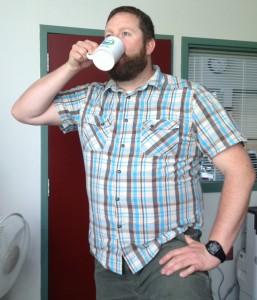 teacher is passionate about their job is key, because it does not limit it to the subject area. While I maintain that being passionate about one’s subject matter is a plus, to be passionate about teaching means that no matter what class you are teaching you have the students best interests at heart, and are willing to take the time to familiarize yourself with the content of the class.
teacher is passionate about their job is key, because it does not limit it to the subject area. While I maintain that being passionate about one’s subject matter is a plus, to be passionate about teaching means that no matter what class you are teaching you have the students best interests at heart, and are willing to take the time to familiarize yourself with the content of the class.
Passion is not limited to teachers, but also to students. The difference between a teacher and a student is that students may not have the life experience to decide what they are passionate about. For me, school offers young people a chance to be exposed to a variety of things, so that they are able to find what they are passionate about. A teaching kitchen becomes just one more place for students to be inspired.
Curiosity
Curiosity for me applies to both the teacher and the students. I believe that a teacher needs to be curious, so that they are never stagnant in their practice. Being curious means that you are asking questions, and constantly pushing the boundaries of your own knowledge (Engel, 2013). For me in a teaching kitchen, curiosity is a way to explore the ever-changing world of food. There has been a huge shift in the way people are looking at and talking about food, and the more inquisitive I am about it, the more I am able 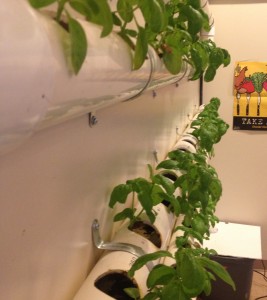 to learn. The more that I know about food, the more breadth and depth I am able to bring to any discussion in the classroom or kitchen. I believe that curiosity for students is a must. I do not believe that there is a person out there who has never been curious or inquisitive about something, but I do believe that school can sometimes dampen a person’s innate curiosity in favour of a standardized curriculum. It is my hope that through culinary arts I will be able to draw out a student’s innate inquisitiveness. I believe that this is possible because food is so closely tied to so many things (cultural identity, socioeconomic status, politics, etc). For me food, and a teaching kitchen are merely gateways to a myriad of questions.
to learn. The more that I know about food, the more breadth and depth I am able to bring to any discussion in the classroom or kitchen. I believe that curiosity for students is a must. I do not believe that there is a person out there who has never been curious or inquisitive about something, but I do believe that school can sometimes dampen a person’s innate curiosity in favour of a standardized curriculum. It is my hope that through culinary arts I will be able to draw out a student’s innate inquisitiveness. I believe that this is possible because food is so closely tied to so many things (cultural identity, socioeconomic status, politics, etc). For me food, and a teaching kitchen are merely gateways to a myriad of questions.
Openness
Closely tied with curiosity is the idea of openness. Curiosity, for me, is a more active concept; a person pursues what they are interested in. Openness on the other hand is more passive. We are constantly bombarded with new things and ideas, and it is only if we are open to these that they will have any impact. I believe that openness is essential for students, there is so much gossip in schools that a student may hear that none of their friends like something, and by default they no longer like it. This type of thinking is truly limiting, especially in a teaching kitchen. There are so many types of food and cuisine, and while no one will ever like everything, if they are unwilling to try then they will never know.
Openness for a teacher comes in two forms, openness to peers and openness to students. For me, being open to peers is being open to the expertise that they may have in areas that I do not. As a new teacher, 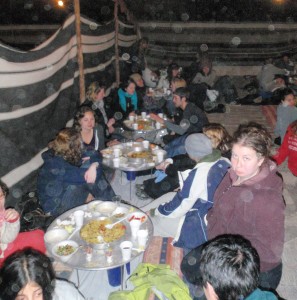 being open to constructive criticism is key. By being open to what my peers have to say, it allows me to learn from my mistakes, and work towards becoming a better teacher. For me openness to students means listening to what they have to say, because they may know something that I do not. But openness also means accepting their flaws. Students are not perfect, and they will have their difficult moments being open to these makes it easier to work with the students in order to bring out their best.
being open to constructive criticism is key. By being open to what my peers have to say, it allows me to learn from my mistakes, and work towards becoming a better teacher. For me openness to students means listening to what they have to say, because they may know something that I do not. But openness also means accepting their flaws. Students are not perfect, and they will have their difficult moments being open to these makes it easier to work with the students in order to bring out their best.
References
Bernstein-Yamashiro, Beth; Noam, Gil G. (2013). Teacher-Student Relationships: Toward Personalized Education. Retrieved from http://www.eblib.com
Engel, Susan. (2013). The case for curiosity. Educational Leadership, 70 (5), 36-40.
Kridel, C. A. (2010). Waldorf School Curriculum. In Encyclopedia of curriculum studies. Sage Publications
Thomas, Jerelyn. (2007). Teaching with passion. Educational Digest, 73 (3), 63-65.